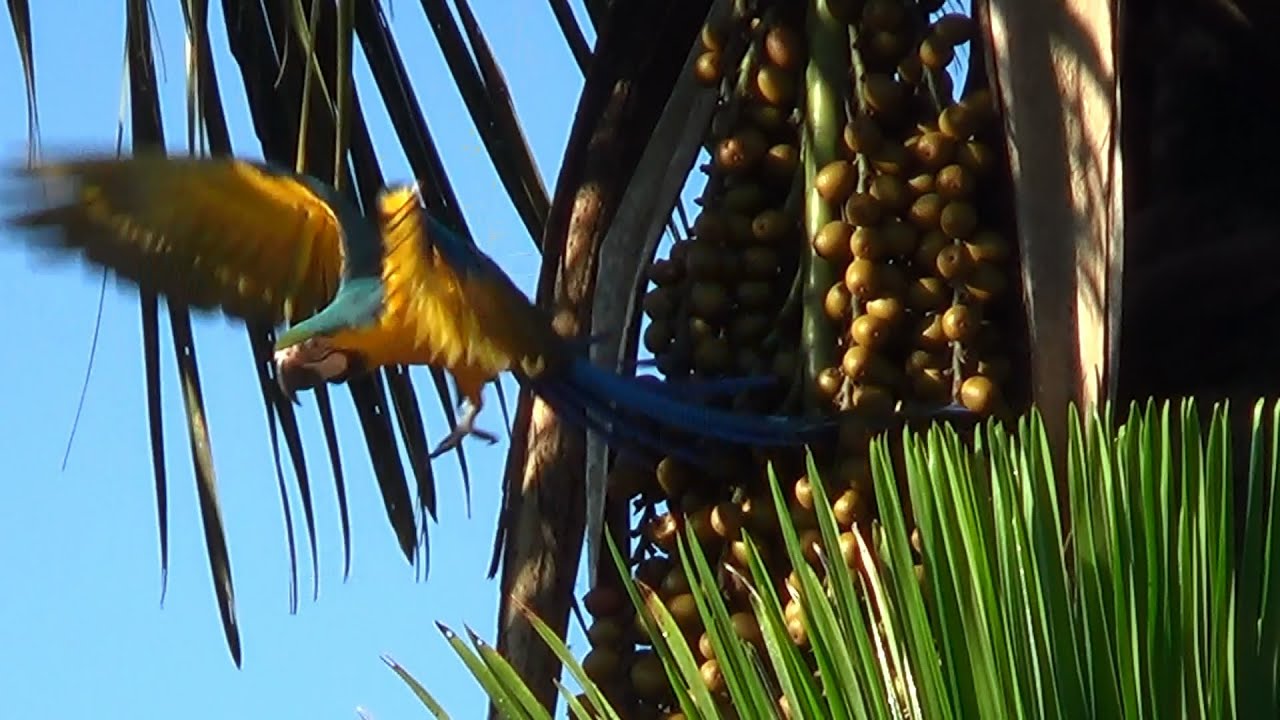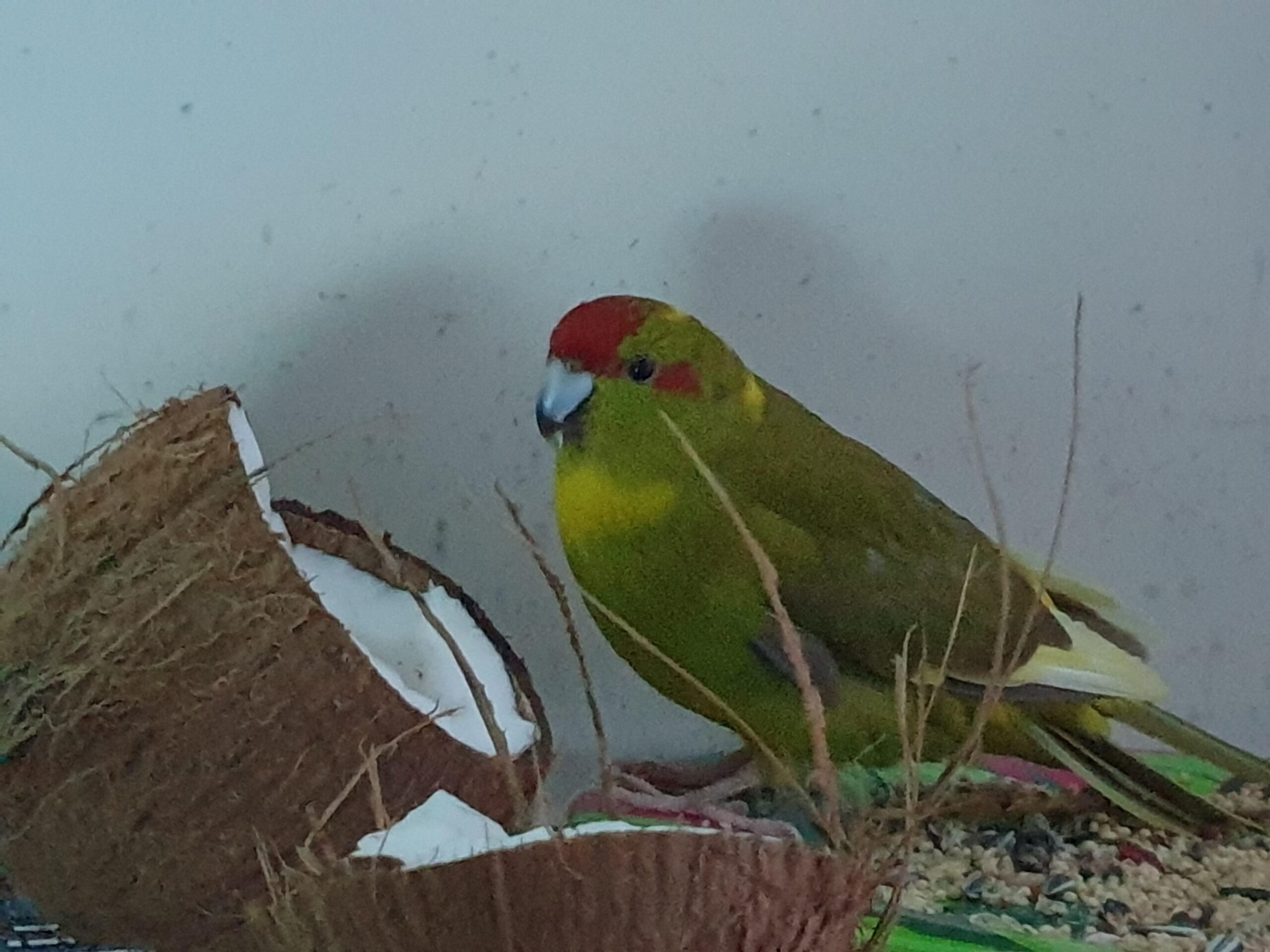Coconut, with its unique taste and texture, is a popular fruit enjoyed by humans worldwide. But have you ever wondered if birds can also indulge in this tropical delight? In this article, we will explore whether birds can eat coconut and delve into the nutritional benefits and potential risks associated with feeding coconut to our feathered friends.

**Table of Contents
- Can Birds Eat Coconut?
- Nutritional Benefits of Coconut for Birds
- Risks and Precautions
- How to Feed Coconut to Birds
- Conclusion**
1. Can Birds Eat Coconut?
Yes, birds can eat coconut! Coconut flesh, also known as the meat or pulp, is safe for most bird species to consume. However, it is important to note that not all birds have the same dietary requirements, so it is essential to consider the specific needs of your feathered friend before introducing coconut into their diet.
2. Nutritional Benefits of Coconut for Birds
Coconut is a nutrient-rich fruit that offers several health benefits for birds. It is a good source of healthy fats, vitamins, minerals, and dietary fiber. The main nutritional components of coconut include:
- Healthy Fats: Coconut contains medium-chain triglycerides (MCTs), which are easily digestible and provide a quick source of energy for birds.
- Vitamins: Coconut is rich in vitamins such as vitamin C, vitamin E, and various B vitamins, which support the overall health and well-being of birds.
- Minerals: Coconut is a good source of minerals like potassium, manganese, and copper, which are essential for maintaining proper bodily functions in birds.
- Dietary Fiber: The fiber content in coconut aids in digestion and promotes a healthy gut in birds.
3. Risks and Precautions
While coconut can be a nutritious addition to a bird’s diet, there are a few risks and precautions to consider:
- Allergies: Some birds may be allergic to coconut. It is important to observe your bird for any signs of allergic reactions, such as itching, rashes, or difficulty breathing. If any adverse reactions occur, discontinue feeding coconut immediately and consult a veterinarian.
- High Fat Content: Coconut is high in fat, which can be beneficial in moderation. However, excessive consumption of fatty foods can lead to obesity and other health issues in birds. It is crucial to offer coconut as a treat rather than a staple food.
- Size and Texture: Coconut flesh can be quite hard and may pose a choking hazard, especially for smaller bird species. To prevent choking, ensure that the coconut pieces are small and easily manageable for your bird.
4. How to Feed Coconut to Birds
When feeding coconut to birds, it is essential to follow these guidelines:
- Fresh and Raw: Offer fresh and raw coconut flesh to birds. Avoid feeding them processed or sweetened coconut products, as they may contain additives or preservatives that can be harmful to birds.
- Small Portions: Introduce coconut gradually and in small portions to assess your bird’s tolerance and preferences. Monitor their response and adjust the quantity accordingly.
- Preparation: Remove the outer husk and shell of the coconut, and cut the flesh into small, bite-sized pieces. This will make it easier for birds to consume and reduce the risk of choking.
- Variety is Key: While coconut can be a delightful treat, it should not replace a balanced diet for birds. Ensure that your bird’s diet consists of a variety of fruits, vegetables, seeds, and pellets to meet their nutritional needs.
5. Conclusion
In conclusion, birds can indeed enjoy the goodness of coconut. It provides them with essential nutrients, healthy fats, and dietary fiber. However, it is crucial to feed coconut in moderation and consider the specific dietary requirements of your bird. Always prioritize their safety and well-being by monitoring their response to coconut and consulting a veterinarian if needed.
Remember, a happy and healthy bird is a well-nourished bird!
FAQs
-
Can all bird species eat coconut?
While most bird species can safely consume coconut, it is essential to consider the specific dietary requirements of each species. Some birds may have allergies or sensitivities to coconut, so it is best to observe their response and consult a veterinarian if unsure. -
Can I feed my bird coconut oil instead of coconut flesh?
Coconut oil can be offered to birds in small amounts as an occasional treat. However, it should not replace the nutritional benefits of fresh coconut flesh, which provides a variety of nutrients and dietary fiber. -
Are there any alternatives to coconut for birds?
Yes, there are several other fruits and vegetables that birds can enjoy. Some suitable options include apples, bananas, berries, carrots, and leafy greens. It is important to offer a diverse diet to ensure your bird receives a wide range of nutrients. -
Can birds eat coconut shells or husks?
No, birds should not consume coconut shells or husks as they are indigestible and can cause blockages in their digestive system. Always remove the outer husk and shell before offering coconut flesh to birds. -
What are the signs of an allergic reaction in birds?
Signs of an allergic reaction in birds may include itching, rashes, difficulty breathing, sneezing, or swelling. If you notice any of these symptoms after feeding coconut to your bird, discontinue the coconut immediately and seek veterinary advice.

